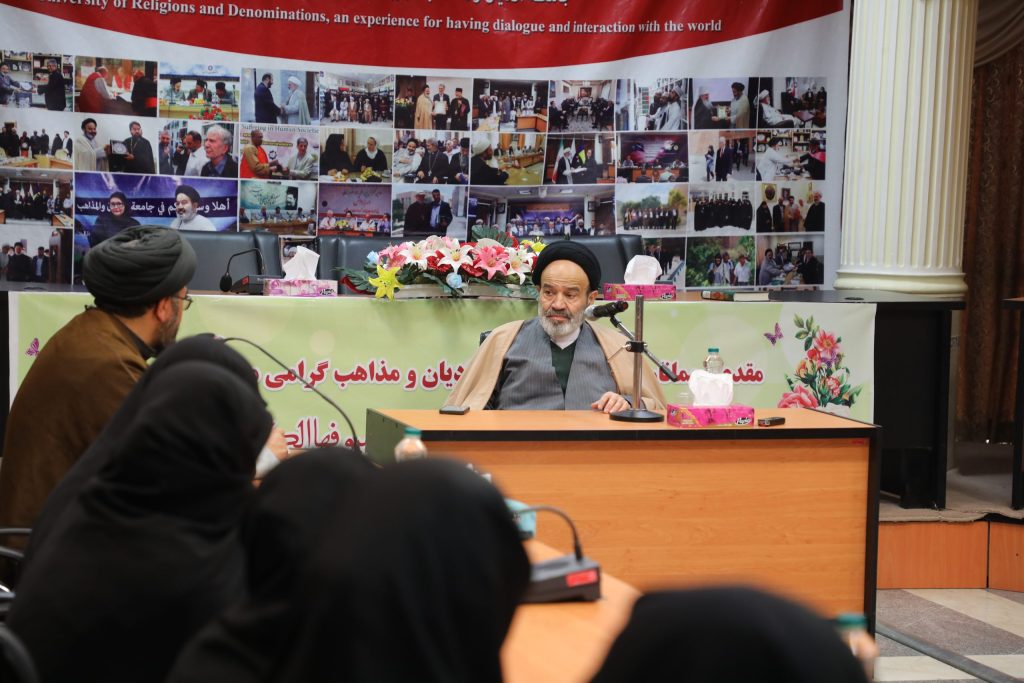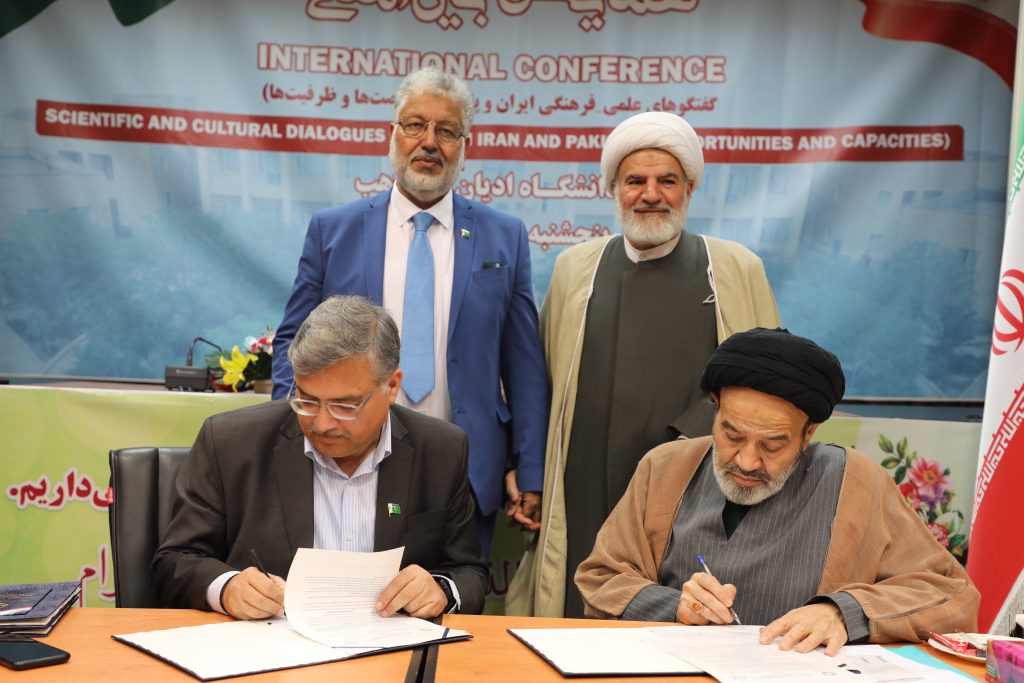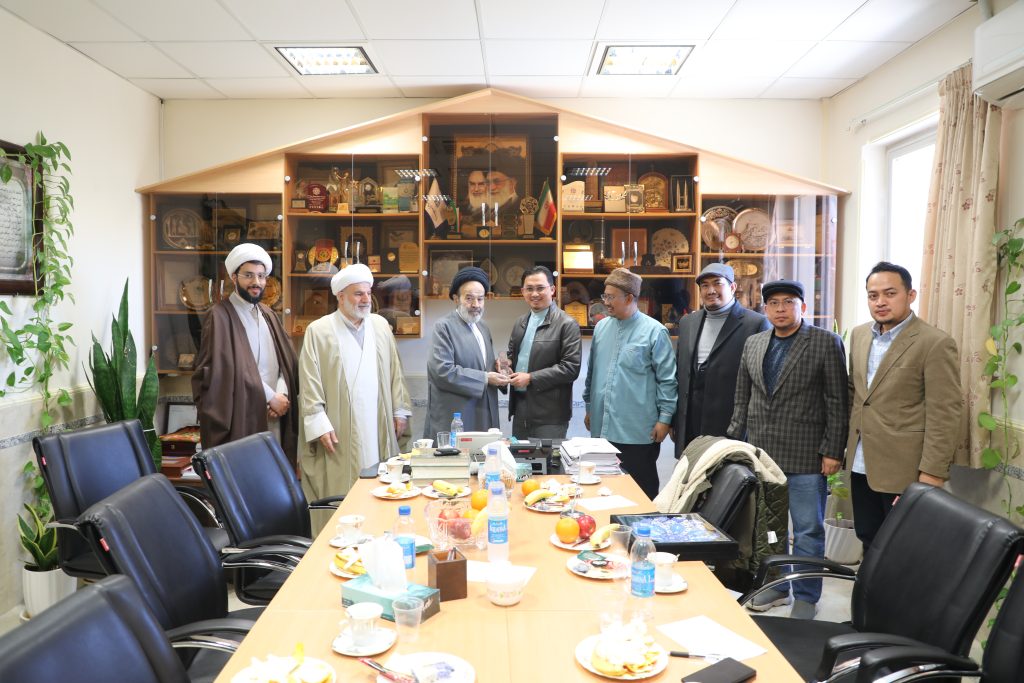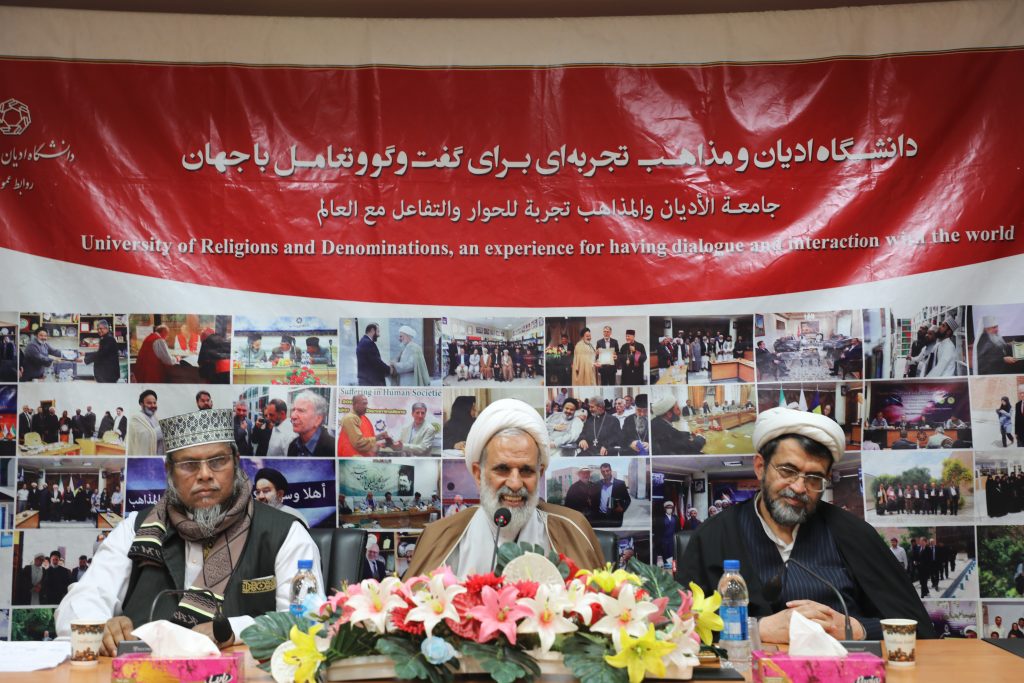There has been no volition to know the correct and basic principles of Islam among the westerners
After the Crusaders, the 8th century onwards, we have not had a Shia’s Imam Government to attracted Europeans attention.

According to the university’s public relations report; By effort of the Research Institute of Islamic Philosophy and Theology and the Scientific and International Cooperation center of the Research Institute of Islamic Sciences and Culture, the scientific meeting “Western Shiite Studies in the Safavi’s age” was held with the presentation of Mohammad Javdan, a member of faculty of the Religions and Denominations University.
Dr. Mohammad Javadan, a member of faculty of the Religions and Denominations University, during his speech at this scientific meeting stated: “Among the Westerners, there has been no volition to know the true and basic principles of Islam, let alone Shi’a, because they did not consider Islam as an ideal religion from the beginning.” And they consider Islam to be an anti-Christian movement, which is trying to destroy the foundation of Christianity, and they used to go to the Bible and other texts to know about Islam, as we go to our narrative sources such as Al-Ghaibah Noemani and Sheikh Tusi to know the Anti-Christ or Anti-Islam.
Dr. Javdan stated: After the Crusaders, the 8th century, we have not had a Shia’s Imam Government that attracted the attention of Europeans. Therefore, their contact with Sunni Islam was still established and from the 13th century, two centuries before the Safavi’s age, the Ottoman government was formed, and during the period of its power, it was the largest empire of its time, and no other empire was formed after that. The Ottoman caliphate was a Sunni caliphate, and the west was in their range, and they had the most contact with the Sunnis. Therefore, the unfamiliarity continued from the Crusader period to the post-Ottoman period until the Safavi came to power.
This university professor added: Safavi revived and popularized the land of Iran and Imamic Shiism. Of course, Shiism has always existed in Iran, and there were Shia in Qom from the second century and in Kashan from the fourth century onwards, and in Gilan there were Shia from the beginning, but in general, Sunnis prevailed, but in the Safavi period, the Twelvey Shiites prevailed. And religion became official. Safavi came to power at the height of the Ottoman Caliphate. Of course, he wanted to conquer all of Europe and bring it under the control of Islam, and Europe felt threatened by the Ottomans, and the most part of today’s phobia of Islam goes back to the period of the Ottoman Caliphate. Of course, the Ottoman Empire fell and the new Turkey emerged in the last hundred years.
He added: Safavi with the official Shia religion and with a significant population and the strategic region was directly against the Ottoman government, and the first war between Shah Ismail and the Ottomans took place for this reason. Of course, Shah Ismail failed because he did not know that the Ottomans were armed with some new weapons such as artillery. Of course, some people gave the necessary warning to Shah Ismail, but he didn’t listen because he believe that he was invincible and confirmed by God’s special confirmations, while we should know the enemy correctly and have an accurate assessment of ourselves and fight against the enemy based on that.
He continued: Europe considered the Safavi as an opportunity, because the Ottoman Empire was a danger and threat to them. Therefore, they established relations with the Safavi and delegations came to the Safavid court since the 10th century. One of the goals of these was to establish commercial, political, scientific and propaganda communication because they were at the beginning of industrialization. Of course, the evangelistic motive was the last and European governments also competed with each other and two world wars were happened due to such differences, but they gradually realized that they had to put aside the conflict in order to progress, so they reached the Europe Union. During the Safavi, 200 tourists came to Iran from Europe, some of them were tourists, some were businessmen, some were political delegations, some were scholars and artists, and some were evangelists, and during this period, increased Europe’s attention to the East.
Member of faculty of the Religions and Denominations University emphasized: Some of these people knew up to eight languages such as Arabic, Chaldean, Turkish, French, English and Farsi, and they started writing travelogues. Some of the travelogues were completely diplomatic. While some of them were political, they referred to certain customs and traditions, and some of them were a kind of report on the issues of society and people, customs and beliefs and ritual, clothing, industry, road and geography, and artistic and architectural issues.
Travelogues pay attention to people’s religious beliefs
Dr. Javdan stated: Therefore, during this period, a kind of travelogue Shia studies was formed, and the expectation is that the past trend of Shia studies will change, and to some extent, this brief knowledge was provided, although a note should be made on it; Some of these travelogues have paid attention to the religious beliefs and Shia scientific personalities and opinions of Shia scholars, Shia sources, etc., which is very limited. One of these travelogues is the travelogue of the Sherly brothers who came to Shah Abbas Safavi as ambassadors from England. Their mission was to incite Shah Abbas to fight with the Ottomans and to gain concessions for British merchants, and of course they were also familiar with military issues and introduced the new weapons for the first time to Iranian army. This travelogue was translated into Persian during the Naseri period and published in Tehran in 1330.
He added: This travelogue relies on observations and hearsays and did not seek scientific research or refer to scientific figures or field studies, but mostly covered their own field observations from government, cities, etc., especially in Isfahan. Sometimes contradictions can be seen in this travelogue and some facts have been distorted. This travelogue deals with morals, religious affairs and social beliefs marginally.
Member of the faculty of Religions and Denominations University said: For example, it has been claimed that in Iran, unlike the Ottomans, they do not respect Sadat and that Sadat does not different from others, and if someone expresses such superiority, they cut their neck, this thing was not true and before Shiites became public, they respected Sadat, and respect to Sadat yet. Their other report is that Iranians believe in one God and have accepted Hazrat Ali (a.s.) and consider Muhammad to be a great prophet, and this has been a progress in getting to know Shia. They have very excellent and beautiful mosques and they keep them perfectly clean, and in the middle of yard, there is a pulpit and basin which they perform ablution, and there are holy people who ask them whether they should go on a trip or not. These people walk naked and wear clothes made of blue felt, and every year on the day of the murder of Morteza Ali (a.s.), they injure themselves with a knife and sometimes they give themselves severe punishment that they die. Maybe the machete are mentioned.
Javdan stated: It is mentioned in the travelogue that their priests wear white clothes and pray every Friday with the full presence of their hearts and are so immersed in worship that they are astonished; At the same time that we abstain in England, they observe a fast that lasts for about 29 days and they do not eat anything all day until they break their fast and enjoy themselves at night. Of course, he said that some people were having fun. Then he said that reasonable people never drink wine except when the king declared it free, and Christians and the king were free to drink wine.
Stating that 5 almost important travelogues were written by the French, he added: another person named Pietro Delavalle, for the first time described the stone inscriptions of Persepolis for the Westerners in the 17th century. He refers to the celebration of Ghadir Eid and that people celebrate on this day. Muharram mourning and Iran’s architecture, the place of rituals, religious manifestations and its great prosperity have also been considered and that these rituals are very popular among the people, but the kings do not pay much attention to it. Also, this belief is common among most of the people that the Safavi king has the light of God and they consider themselves to be the descendants of Fatima (PBUH). This travelogue mentions the defeat of Chaldoran and tells the legend of king Ismail’s invincibility. Interestingly, he mentioned that the most important oath is the oath to the head of king Abbas, and if someone swears to the head of king Abbas, he does not dare to break the oath.
Member of the faculty of Religions and Denominations University stated: He mentioned that the shrine of Hazrat Abdul Azim Hasani (AS) is safe and shelter for all Shiites and even if someone besieges there or is a criminal and takes refuge there, he is safe. Also, during Muharram mourning ceremony, bow and arrow and sword are tied on the saddle of the horse, which is from the tradition of Imam Ali (AS). He also paid attention to the high and important position of the holy shrine of Hazrat Masoumeh (pbuh) and named this shrine at the same level as the shrine of Hazrat Imam Reza (pbuh). He pointed out that the belief of the Safavi Shiites is that only they are blissful. Also, even though king Abbas was biased towards Shiism, he was tolerant towards the followers of other religions.
He clarified: In some other travelogues, he even mentioned the opinion of the scholars about the type of government during the occultation period, or John Charden, who wrote the most detailed travelogue and discussed the Ghorban-Eid ceremony, camel sacrifice, and Ashura ceremony, and added the ten days of Muharram and compare to the holy week of Christian. And that Shiites do not go to the bathroom, wear black clothes, do not rejoice, and no one plays musical instruments.




